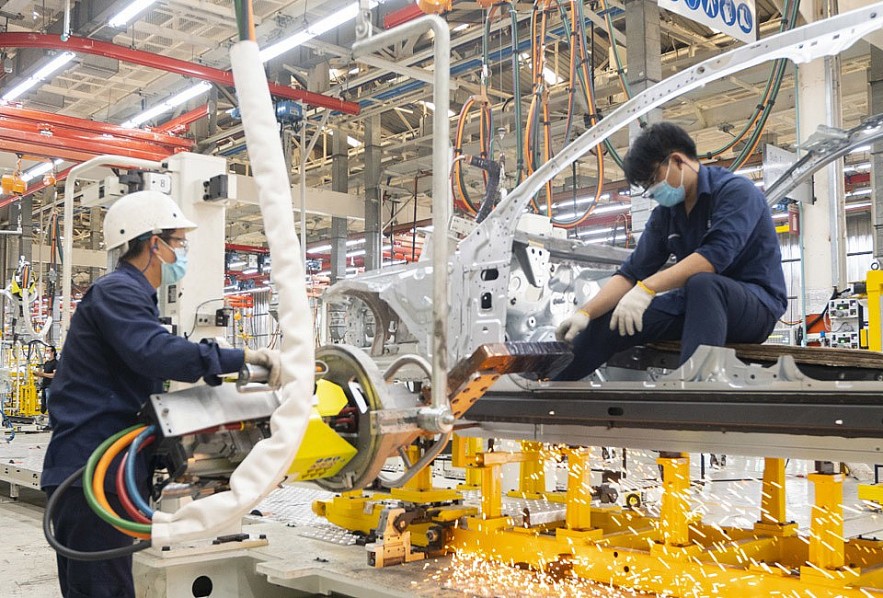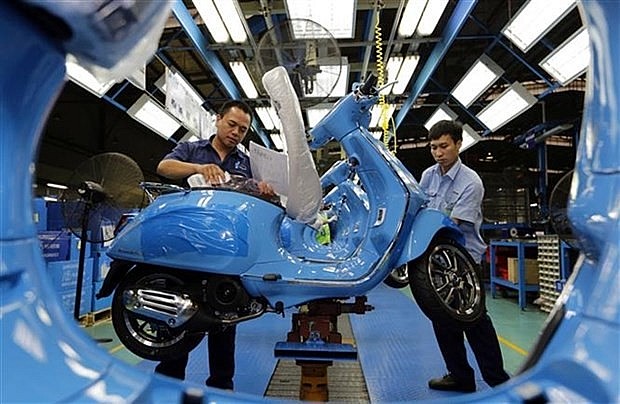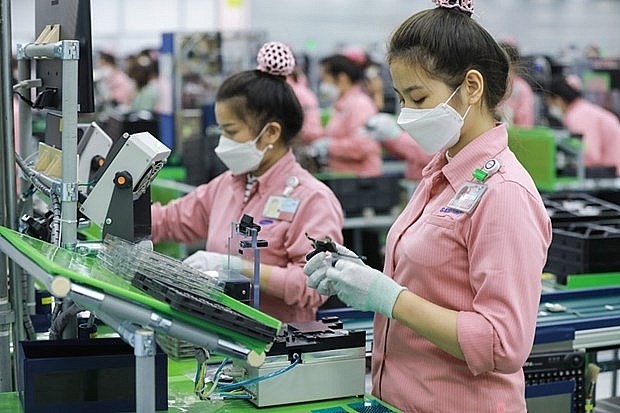 |
| Vietnam’s economy grew over 8% for the whole of 2022. Photo: VNBusiness |
The latest Business Climate Index (BCI) published by the EuroCham showed that the BCI dropped below the baseline to 48.0 in Q4 2022, a drop of 14.2 points compared to three months ago and 25 points from the first quarter of the year, Viet Nam News reported.
Though Vietnam’s economy grew over 8% for the whole of 2022, this data comes amid continued global economic volatility resulting from a storm of factors including a slowdown in global growth, interest rate hikes, sustained inflation and bruised consumer confidence.
The number of companies expecting economic stabilisation or improvement in Q4 dropped to 27% from 42% in Q3, while the number of firms with growing sense of pessimism doubled from 19% in Q3 to 38% in Q4.
“Things were definitely less positive in the fourth quarter of 2022 than they were earlier in the year,” said EuroCham Chairman Alain Cany.
However, according to him, this should not be viewed as a cause for concern.
“In fact, Vietnam’s economic opportunities continue to exceed those of its regional and international peers. This is evident from the fact that so many of EuroCham’s members consider Vietnam central to their global investment strategies,” Cany said.
The report said 41% of respondents stated their company is shifting operations from China to Vietnam, up from 13% in the third quarter, while nearly 35% of firms ranked Vietnam among the top five global investment destinations for their company, with 12% stating that Vietnam was their firm’s top investment site globally.
 |
| Motorbike production line of Piaggio Vietnam’s factory in Binh Xuyen Industrial Park, Vinh Phuc Province. Photo: VNA |
However, the report also pointed out three most significant regulatory barriers to foreign companies operating in Vietnam, including a lack of clarity regarding rules and regulations (51%), administrative issues (41%) and visa and work permit difficulties (30%).
Despite that, 58% were satisfied with the attention of policymakers paid to business needs when setting relevant policies.
In addition, BCI participants reported that the EU-Vietnam Free Trade Agreement (EVFTA) had a positive effect on the growth of their businesses, their financial health through tariff reductions and the strength of their supply chains.
The Ministry of Planning and Investment reported that Vietnam attracted a total of $27.72 billion in foreign direct investment (FDI) as of December 20, equal to 89% of the figure of the same period last year.
There were 2,036 newly-registered FDI projects worth $12.45 billion, up 17.1% year-on-year in the number of projects, but down 18.4% in value.
 |
| Vietnam attracted a total of $27.72 billion in foreign direct investment (FDI) as of December 20. Photo: VNA |
Meanwhile, 1,107 projects had their capital adjusted, with a total amount of $10.12 billion, up 12.4% and 12.2% year-on-year, respectively.
The period saw 3,566 capital contributions and share purchases with a total amount of $5.15 billion, down 6.1% and 25.2%, respectively.
To attract more FDI, Vietnam needs to pay attention to training high-quality human resources, accelerating administrate reform and developing and upgrading infrastructure, VietnamPlus cited EuroCham as saying.
The organisation said European businesses have planned to expand their investment in renewable energy, hi-tech manufacturing and processing, and research and development (R&D) centre this year./.
European businesses pin hope on EVFTA
The European Parliament has ratified the EU-Vietnam Free Trade Agreement (EVFTA) and the EU-Vietnam Investment Protection Agreement (EVIPA). The ratification is believed to create a breakthrough in trade investment cooperation between European firms and Vietnamese partners after the deals take effect.
EVFTA poses challenges to Vietnamese agricultural products
Since the EVTFA was approved, experts have been analysing the opportunities for Vietnam to penetrate deeper into the high-value foreign markets. However, the implementation of the deal also poses many challenges to Vietnamese agricultural products. Besides strict standards from the European Union market, competitive pressure in the domestic market is also a big issue.
Vietnam Seizes Opportunities from EU Trade Deal for Tourism Growth
The EU-Vietnam Free Trade Agreement (EVFTA) is expected to offer opportunities for various economic sectors, including tourism. The new-generation trade deal expected to take effect this year will enable the domestic tourism sector to access new markets, restructure the market and promote sustainable development in the context of complicated global changes.








